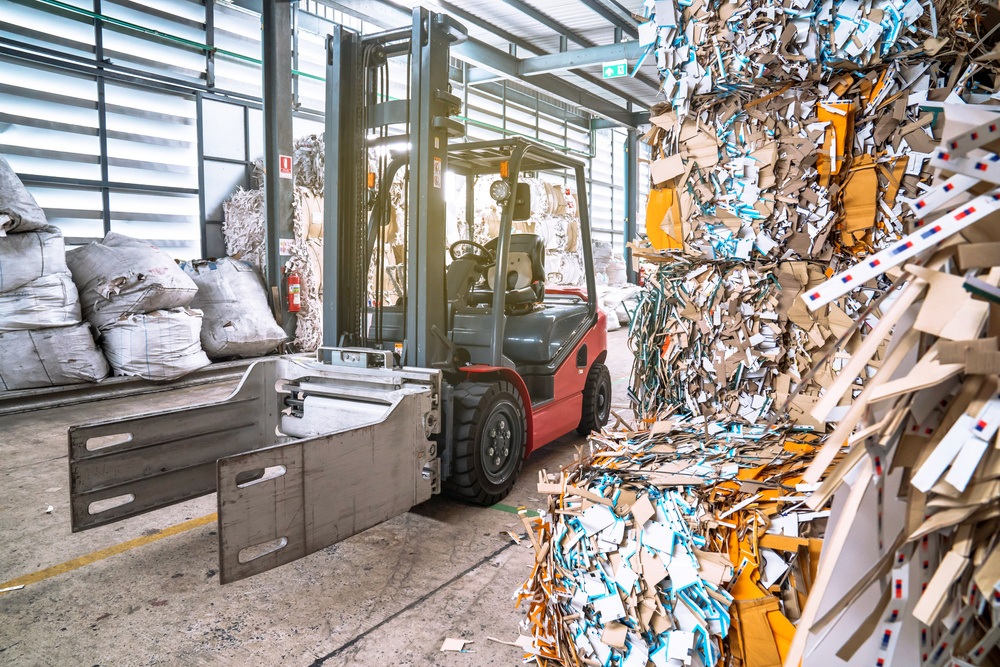Why We Only Accept Industrial Plastic Waste
 You will find several statements on our website making it clear that we don’t deal in consumer plastics. We focus on industrial plastic waste. We are interested in things like plastic purge and cutoffs, baled PET bottles, and all sorts of plastic buckets, totes, etc. We are not interested in the types of plastics the average American household throws into the curbside recycling bin.
You will find several statements on our website making it clear that we don’t deal in consumer plastics. We focus on industrial plastic waste. We are interested in things like plastic purge and cutoffs, baled PET bottles, and all sorts of plastic buckets, totes, etc. We are not interested in the types of plastics the average American household throws into the curbside recycling bin.
If you have ever wondered why we only recycle industrial plastics, you have found a post that will answer your question. We explain everything in the following paragraphs. As you read, bear in mind that effectively recycling consumer plastics is theoretically possible. It is really a question of whether we have the collective will to do it.
Cleaning and Sorting Are Problematic
If you pay attention to the news, you are probably aware that municipal recycling programs have a dismal failure rate. Municipal programs all around the country have been shut down because they are money pits. The two big issues are always the same: cleaning and sorting.
Cleaning and sorting consumer plastics is a labor-intense proposition. It is time-consuming and expensive. When all is said and done, municipalities cannot sell recycled materials at a price high enough to cover their costs. We couldn’t either. So rather than undertake a money-losing task, we just don’t deal with consumer plastics.
Industrial Plastic Waste Comes Clean and Sorted
So what makes industrial plastic waste so much different? First of all, the industrial business model leaves less room for mixed plastics and cross-contamination. Setting aside scrap industrial plastic is nothing like throwing dirty consumer plastics into a bin.
The simplest way to understand this particular point is to know that the plastic we buy comes to us already clean and sorted. For example, consider an injection mold manufacturer whose machines continually churn out plastic cutoffs. All those cutoffs go into bins that are set aside until our truck arrives. Nothing else is in those bins. When we pick up the plastic cutoffs, they don’t have to be cleaned and sorted. They can go straight to processing.
We could theoretically do the same thing with consumer plastics. But that would require consumers to make a considerable amount of effort. It would also require recyclers to keep already separated plastics separate during processing.
The cleaning issue has another element to it. A load of plastic pallets does not have to be scrubbed clean. On the other hand, plastic food containers must be cleaned by someone. Whether the consumer does it or leaves it for the recycling center, cleaning cannot be ignored or else an entire load of plastics is contaminated.
Our Business Model Requires Simplicity
The undercurrent of all of this is the reality that our business model requires simplicity to succeed. No doubt we make a decent profit buying industrial scrap plastic and recycling it. But our margins do not leave a lot of room for extra work. So we need to stick with a simple process to make this business profitable.
Every different type of plastic thrown in the mix complicates matters. The more layers of complexity a process has, the more time and money it takes to run that process. That’s where municipal recycling falls down. It is too complex and too costly. On the other hand, our model for recycling industrial scrap plastic is uncomplicated and comparatively cheap.
We do not accept consumer plastics because there is no money in them. Consumer plastics represent a money-losing idea from a recycling standpoint. That will remain the case until we change the way we manufacture, use, and recycle.